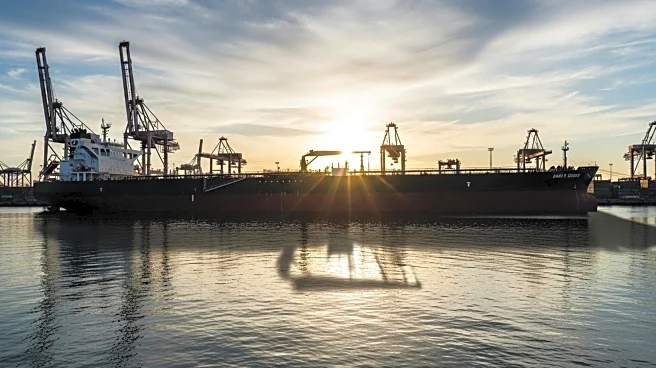What's Happening?
Terminal operators at a major oil port in Shandong province, China, are set to implement new measures to ban shadow fleet vessels and restrict visits by older tankers. These measures, effective from November 1, aim to prohibit vessels using fake International Maritime Organization (IMO) numbers and ships over 31 years old. This move targets the shadow fleet, which is known for transporting oil under Western sanctions. The decision follows the United States' designation of a nearby oil terminal as receiving Iranian oil carried by sanctioned vessels. The new rules also include a scoring system to assess the risk level of vessels, with older ships receiving lower scores. Vessels with invalid certificates or a history of pollution or accidents will also be banned.
Why It's Important?
The introduction of these measures is significant as it reflects China's response to increasing U.S. sanctions pressure and environmental concerns. By targeting the shadow fleet, China aims to align its port operations with international standards and reduce the risk of environmental damage. This move could impact the global oil market, particularly for countries like Iran, which rely on shadow fleets to bypass sanctions. The ban may also influence shipping companies to upgrade their fleets to meet the new requirements, potentially affecting the shipping industry's operational costs and logistics.
What's Next?
As the measures take effect, it is anticipated that there will be a shift in the dynamics of oil transportation in the region. Shipping companies may need to adapt by investing in newer vessels or finding alternative routes to comply with the new regulations. Additionally, there could be diplomatic implications as China navigates its relationship with Iran and the U.S. in light of these changes. The effectiveness of the ban in curbing shadow fleet activities will likely be monitored closely by international stakeholders.












